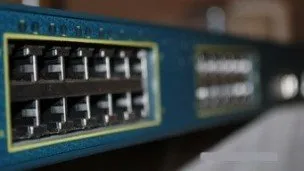
Cisco CCNA Network Fundamentals Chapter 1 
This course provides an introduction to Network Fundamentals, allowing learners to gain a comprehensive understanding of the basics. Cisco CCNA Network Fundamentals Chapter 1 is the perfect starting point for those looking to build a strong foundation in networking. ▼
ADVERTISEMENT
Course Feature
![]() Cost:
Cost:
Free
![]() Provider:
Provider:
Udemy
![]() Certificate:
Certificate:
No Information
![]() Language:
Language:
English
![]() Start Date:
Start Date:
Finished
Course Overview
❗The content presented here is sourced directly from Udemy platform. For comprehensive course details, including enrollment information, simply click on the 'Go to class' link on our website.
Updated in [March 06th, 2023]
This course provides an introduction to Cisco CCNA Network Fundamentals. Participants will learn the basics of what a network is, what devices are used, and how to view networking in a different manner. They will learn about symbols and how to use them to build networks with drawings. They will also learn about routers and switches, crossover cables, and the pins used to transmit and receive. Additionally, they will learn about Ethernet, IP addresses, and MAC addresses. This is the first part of a four-part series on Network Fundamentals.
[Applications]
After completing this course, students should be able to apply their knowledge of Network Fundamentals to build a basic network. They should be able to identify the different types of networking devices, understand the purpose of a router and a switch, and be able to configure a network using Ethernet cables. Additionally, they should be able to identify and understand the purpose of an IP address and a MAC address.
[Career Paths]
Based on the course content, the following career paths are recommended to learners:
1. Network Engineer: Network Engineers are responsible for designing, implementing, and maintaining computer networks. They must have a strong understanding of network fundamentals, such as routing protocols, switching, and security. Network Engineers must also be able to troubleshoot and resolve network issues. This role is in high demand and is expected to continue to grow as organizations become increasingly reliant on technology.
2. Network Administrator: Network Administrators are responsible for managing and maintaining computer networks. They must have a strong understanding of network fundamentals, such as routing protocols, switching, and security. Network Administrators must also be able to troubleshoot and resolve network issues. This role is in high demand and is expected to continue to grow as organizations become increasingly reliant on technology.
3. Network Security Analyst: Network Security Analysts are responsible for designing, implementing, and maintaining secure computer networks. They must have a strong understanding of network fundamentals, such as routing protocols, switching, and security. Network Security Analysts must also be able to troubleshoot and resolve network security issues. This role is in high demand and is expected to continue to grow as organizations become increasingly reliant on technology.
4. Network Architect: Network Architects are responsible for designing, implementing, and maintaining computer networks. They must have a strong understanding of network fundamentals, such as routing protocols, switching, and security. Network Architects must also be able to troubleshoot and resolve network issues. This role is in high demand and is expected to continue to grow as organizations become increasingly reliant on technology.
[Education Paths]
Recommended Degree Paths:
1. Bachelor of Science in Computer Science: This degree path provides students with a comprehensive understanding of computer science fundamentals, including programming, software engineering, computer networks, and operating systems. It also covers topics such as artificial intelligence, machine learning, and data science. This degree is becoming increasingly popular as technology continues to evolve and become more complex.
2. Bachelor of Science in Information Technology: This degree path focuses on the application of technology to solve business problems. It covers topics such as database management, web development, network security, and system administration. This degree is becoming increasingly popular as businesses rely more heavily on technology to improve their operations.
3. Master of Science in Computer Science: This degree path provides students with an advanced understanding of computer science fundamentals, including programming, software engineering, computer networks, and operating systems. It also covers topics such as artificial intelligence, machine learning, and data science. This degree is becoming increasingly popular as technology continues to evolve and become more complex.
4. Master of Science in Information Technology: This degree path focuses on the application of technology to solve business problems. It covers topics such as database management, web development, network security, and system administration. This degree is becoming increasingly popular as businesses rely more heavily on technology to improve their operations.
Pros & Cons

Clear explanation

Boosts knowledge

Good for beginners

Great instructor

Covers basics of layers 2 and 3

Screen orientation issue

Long breaks between sentences
Course Provider

Provider Udemy's Stats at AZClass
Cisco CCNA Network Fundamentals Chapter 1 introduces the basics of networking, enabling learners to have a comprehensive understanding of the fundamentals. Cisco CCNA Networking Fundamentals Chapter 1 is the perfect starting point for those looking to gain a solid foundation in networking. This course will give learners a comprehensive introduction to the fundamentals of networking. Learners will learn what networking is, the different types of network devices, and how they work together. They will also learn about Ethernet, IP addresses and MAC addresses.
Discussion and Reviews
0.0 (Based on 0 reviews)
Explore Similar Online Courses

Learn JavaScript for Beginners

Sketch from A to Z

Python for Informatics: Exploring Information

Social Network Analysis

Introduction to Systematic Review and Meta-Analysis

The Analytics Edge

DCO042 - Python For Informatics

Causal Diagrams: Draw Your Assumptions Before Your Conclusions

Whole genome sequencing of bacterial genomes - tools and applications

CCNA (Cisco Certified Network Associate) Course

Packet Tracer labs for the CCNA 200-301 exam: Practical labs

CCNA Quiz Questions: Exam prep Get ready for your exam!
 Related Categories
Related Categories
 Popular Providers
Popular Providers
Quiz
 Submitted Sucessfully
Submitted Sucessfully
1. What is an IP address?
2. What is a MAC address?
3. What is the purpose of a router?


Start your review of Cisco CCNA Network Fundamentals Chapter 1